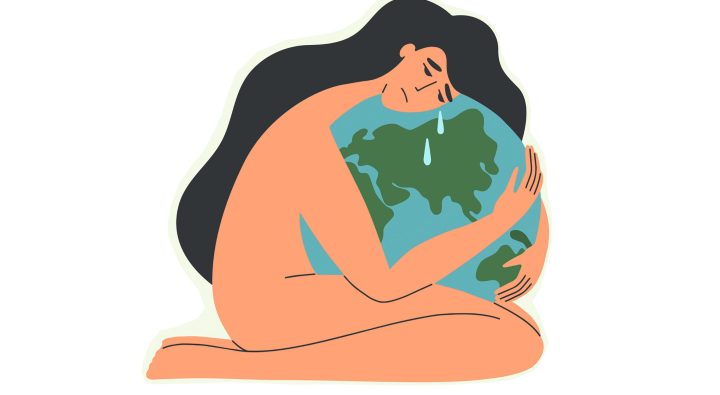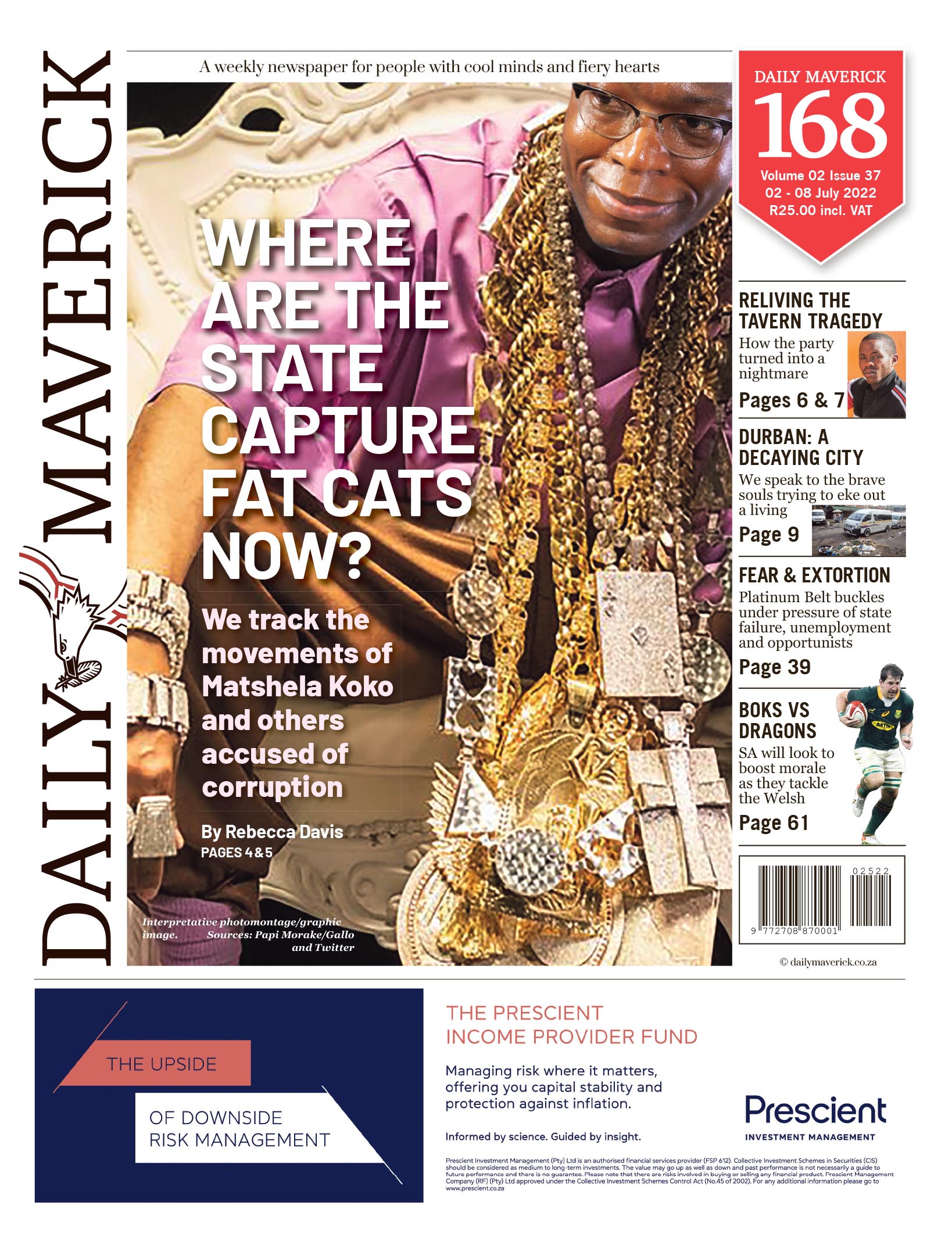EXTREME WEATHER & CRIME
UN report says climate change has the potential to exacerbate gender-based violence

Climate change does not affect everyone equally. This is most noticeable in the different ways it impacts on women and men. A new UN report speaks to this reality, outlining how climate change contributes to drivers and mediating factors which exacerbate gender-based violence.
Coming hot on the heels of the release of South Africa’s quarterly crime statistics, which revealed a sharp increase in the reported number of people – especially women and children – murdered and raped in South Africa, a report by the United Nations (UN) says climate change has the potential to worsen this trend, among other gendered impacts.
The report, released at the Bonn Climate Change Conference early in June, titled, Dimensions and examples of the gender-differentiated impacts of climate change, the role of women as agents of change and opportunities for women, synthesises information on gender-differentiated effects of climate change.
A finding common among all the submissions from observers and parties to the conference noted “women’s greater vulnerability to adverse climate change impacts compared with men’s”.
Importantly, particularly in the South African context, “the increase in gender-based violence following climate-induced disaster was mentioned across the submissions”.
“Evidence for this phenomenon [gender-based violence] has since mounted, especially in the light of the pandemic and the extreme weather events that have hit the Global South over the last three years.”
Others have drawn similar conclusions. The Geneva Centre for Security Sector Governance (DCAF), in its Women Speak: The Lived Nexus Between Climate, Gender and Security report, says that extreme weather events – expected to increase in frequency and intensity as the level of global warming increases – “exacerbate conditions of insecurity for women”.
It says that “women and children are more likely to die in floods, landslides, earthquakes, cyclones and the like, and those who survive have a reduced life expectancy”.
Another ominous DCAF finding, particularly in the South African context, is that “gender-based violence tends to increase after such events”.
The Working Group II contribution to the IPCC’s Sixth Assessment report – described as an “atlas of human suffering” by the UN secretary-general – included similar findings.
In Chapter 7: Health, Wellbeing and the Changing Structure of Communities, the authors explain that “climate hazards are a growing driver of involuntary migration and displacement (high confidence) and are a contributing factor to violent conflict (high confidence).
“These impacts are often interconnected, are unevenly distributed across and within societies, and will continue to be experienced inequitably (very high confidence).
“Cascading and compounding risks affecting health due to extreme weather events have been observed in all inhabited regions, and risks are expected to increase with further warming (very high confidence).”
Pointedly, it also says climate hazards are “associated with increased violence against women, girls and vulnerable groups”.
It affirms that climate change poses distinct risks to women’s health and “climatic extremes and water scarcity” are associated with increases in violence against girls and women”.
The IPCC report in later chapters reiterated that “extreme weather and climate impacts are associated with increased violence against women, girls and vulnerable groups (high agreement, medium evidence)”.
Moreover, “during and after extreme weather events”, women, girls and LGBTQI people are “at increased risk of domestic violence, harassment, sexual violence and trafficking”.
Professor Rachel Jewkes is director of the What Works to Prevent Violence Global Programme, Executive Scientist: Research Strategy in the South African Medical Research Council (SAMRC) Office of the President and the Secretary of the Sexual Violence Research Initiative. She shared her thoughts with Our Burning Planet:
“This is an important topic and it’s one we are currently engaged in research on at the SAMRC – both in relation to the impact of the Durban floods as well as heat on GBV [gender-based violence].
“In relation to heat, our research suggests that there are two really important ways in which it impacts. One is that people sleep more when its hot and need to sleep outside or with windows open, and in some neighbourhoods men see this and take advantage to invade the home and rape.
“The second is that people stay out later and drink more when its hot and so are more vulnerable to alcohol-related GBV such as rape in taverns or partner violence when drunk men get home and quarrel with wives (including about where the money has gone), etc.”
Jewkes said “the other thing is that with temperatures higher and drought, coupled with failures of municipal water supply and poorly planned housing development, people may have to travel further to get to water sources (dams, rivers, etc) and are at risk when so doing, as well as if they are still using wood as a fuel supply, having to travel further and to more risky areas to get firewood”.
In Chapter 9 of the Working Group II report – the chapter that focuses on Africa – the authors write that studies indicate “high temperatures are strongly associated with poor mental health and suicide in South Africa”.
They also indicate that “exposure to extreme heat directly influences emotional control, aggression and violent behaviour, escalating rates of interpersonal violence, with homicides rising by as much as 18% in South Africa when temperatures are above 30℃ compared with temperatures below 20℃”.
In a study titled, Violence in hot weather: Will climate change exacerbate rates of violence in South Africa?, the authors find in the conclusion that evidence “increasingly indicates that the propensity for interpersonal violence may increase in uncomfortably hot temperatures”.
They add that countries like South Africa, “which already have high levels of violence and a rapidly warming climate, may be particularly vulnerable to this underappreciated consequence of climate change”.
The findings are particularly alarming given the country’s current struggles with gender-based violence and the trajectory of global warming.
South Africa’s Low Emission Development Strategy 2050, tabled ahead of the COP26 negotiations in Glasgow, said that “in unmitigated greenhouse gas emissions scenarios, warming of up to 8°C is projected over the interior of the country by the end of this century”.
Fleur Newman, gender team lead at UN Climate Change, said in a statement that “climate impacts, especially extreme weather events, are affecting the roles of women and men around the world, particularly in rural areas”.
Newman said “the world simply cannot reach the central goals of the Paris Agreement to limit global average temperature rise to 1.5℃ unless all of humanity is involved in addressing climate change”.
She added that “while it is concerning to see backsliding on recent gains in gender equality due to the pandemic, there are positive signs that climate policy is increasingly creating opportunities for women and girls to make invaluable contributions to, and benefit from, climate action”. OBP/DM
[hearken id=”daily-maverick/9419″]





















 Become an Insider
Become an Insider
The problem with this UN report is that they forget to include the Socia-Economic factors which are tha actual cause of this violence against women. History has shown that violence has actually increased more in COLD spells than warm ones. The so called Climate Crisis has nothing to do with Gender Based Violence. This is purely due to the world economy being screwed up, partly by stupid climate policies.